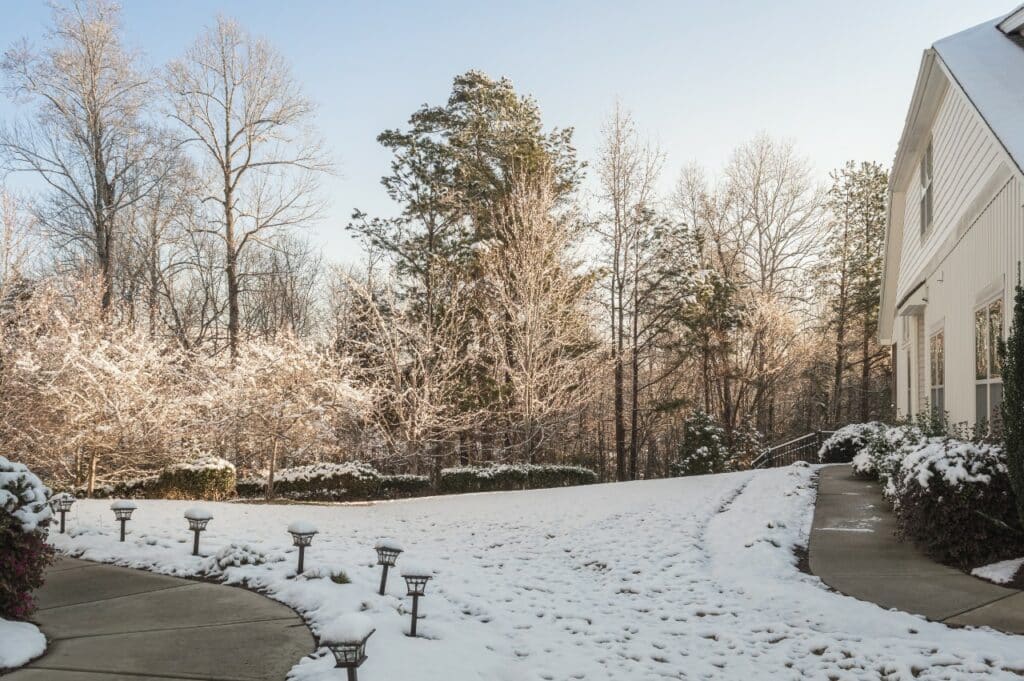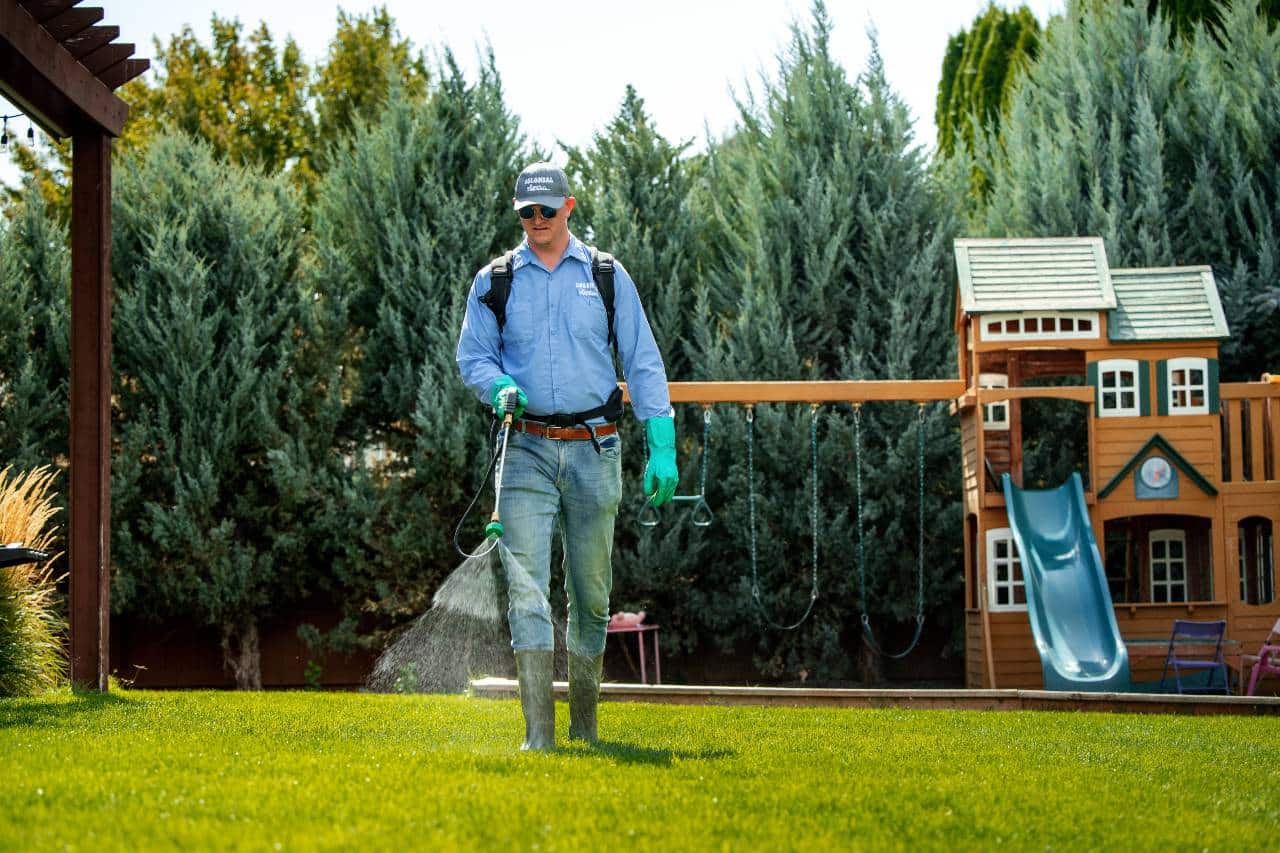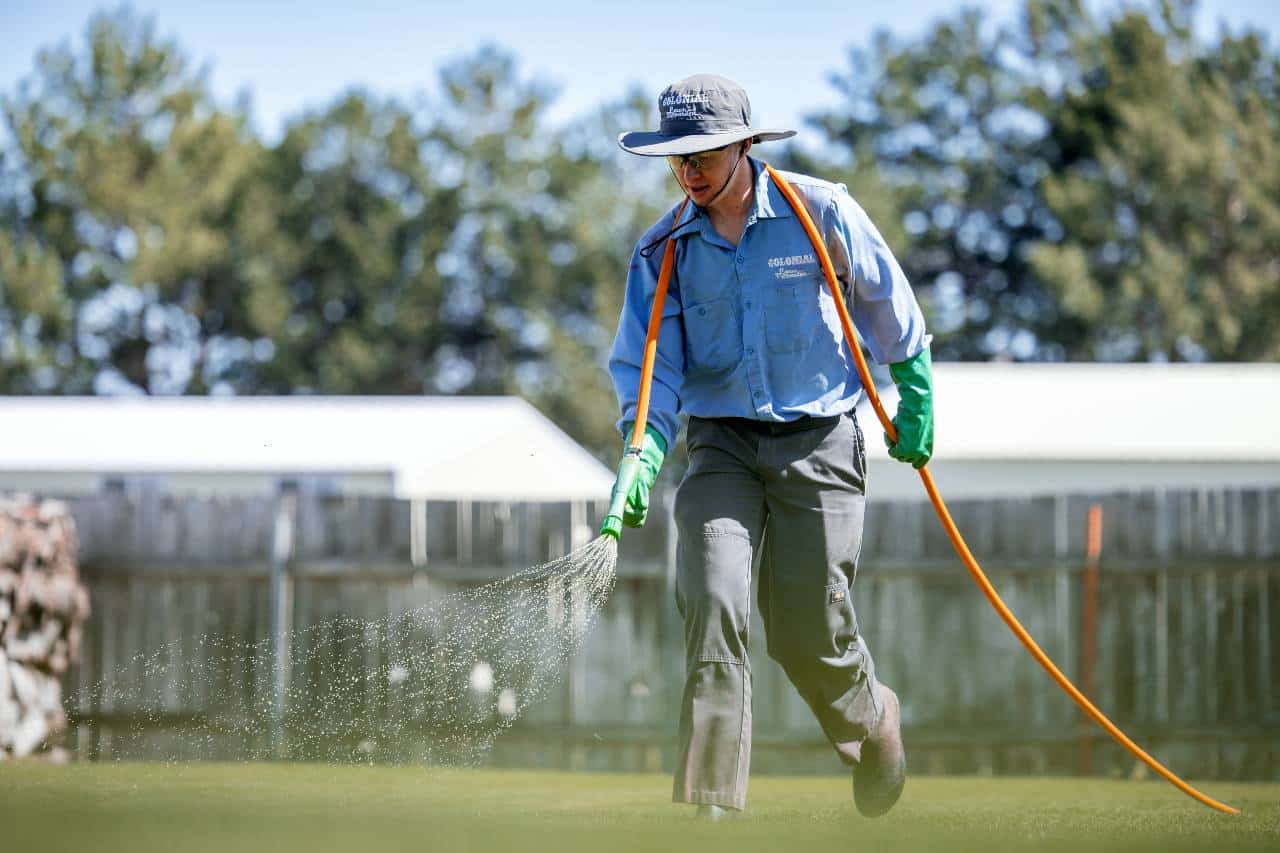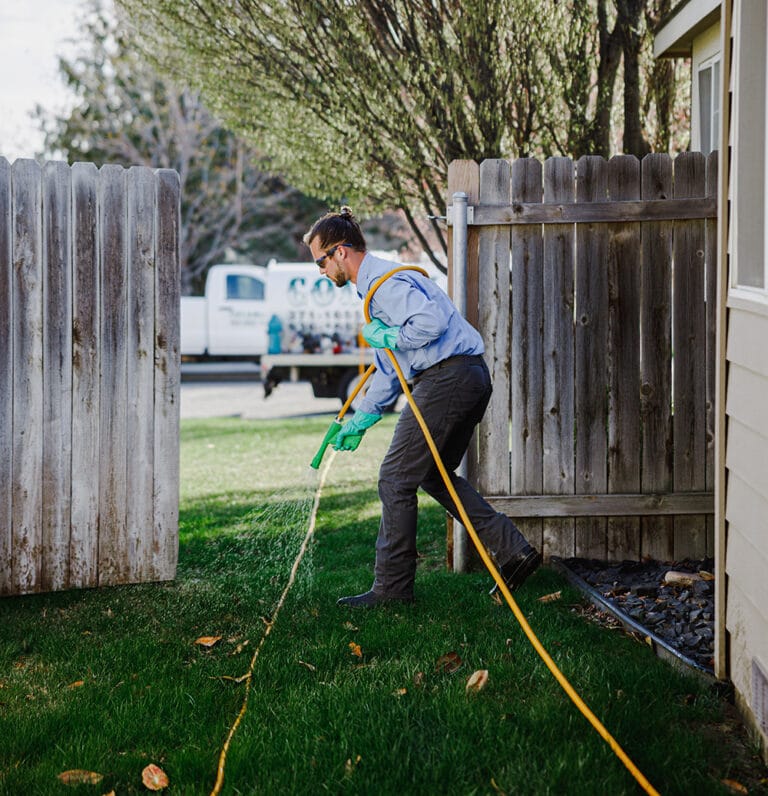You might be thinking that with the arrival of winter, that Routine Lawn Care in Winter won’t be necessary. With the changing weather – ice, frost, and cold temperatures – comes staying inside and hunkering down until next spring. After all, you’ve earned a break from lawn maintenance.
As it turns out, routine lawn care is a four-season job. Your lawn doesn’t hibernate with no need for care over the winter and then magically perk up in the spring. So, if you find routine lawn care to be an enjoyable and relaxing task, then you’ll be happy to know that you can enjoy this type of fun year-round.
Despite the harsh, cold weather of winter, your grass still needs care. Winter is an important time to protect your lawn from the severe cold. Although winter lawn care is not as intense and frequent as the other seasons of the year, there are some things you can do during the winter to promote a green, vibrant, and healthy lawn.
Here, we will present five reasons why routine lawn care is essential during the wintertime.
5 Reasons That Routine Lawn Care in Winter is Essential for the Health of Your Lawn

Fallen Leaves Could Damage Your Lawn
Fallen leaves pose a serious hazard to your lawn. As they drop off from the trees during late fall and into winter, the leaves can suffocate your lawn and cause damage. When the leaves are wet from rain, snow, or ice, they bring about disease in your lawn’s soil, as well as in your plants and trees. This can pose a major issue come spring.
This makes it vital that you regularly rake and collect and dispose of the leaves on your lawn. You should begin raking leaves in the mid and late-fall so you can keep up with the many leaves that will be covering your grass. This will eliminate lawn thatch, which is dead grass located just above the soil.
Another option for ridding your lawn of leaves is to run over the leaves with your mower. Put nutrients into your lawn by recycling the nutrients from the leaves and into your grass. This is especially doable if your mower grinds leaves into small pieces.
Your Lawn Requires Necessary Nutrients Prior to Becoming Dormant
Your grass transitions into hibernation during the wintertime. Fertilizing after aeration and before the severe cold weather arrives gives your lawn a chance to completely absorb the nutrients and store them during the winter.
When spring arrives, your grass can begin using the nutrients it stored. This improves the chances that your grass will be in good condition come spring.
Once you’ve mowed and aerated your lawn, you should fertilize it. This is when knowing what type of grass you have becomes important. For example, warm-season grasses and cool-season grasses have different needs.
If you live in the Tri-Cities – and anywhere in Washington State – you will have cool-season grass in your yard. It is autumn that is the peak time for fertilization for cool-season grasses.
If you have a warm-season grass, you have a narrow time frame for fertilizing. You should ideally fertilize your lawn at the end of September. This gives your grass time to “harden off.”
Excessive Walking on Frosted Grass Could Cause Problems in the Spring
An abundance of walking on frosted or frozen lawn will result in broken blades of grass. This will lead to growing problems in the spring. While walking over the grass won’t necessarily kill the lawn, it will disfigure the grass and cause it to grow back in an unhealthy way.
Routine lawn care will prevent this from happening.
Long Grass Could Result in Snow Mold
If you neglect to do routine lawn care in the winter, then you run the risk of having long grass, which can cause snow mold. Snow mold is a cold-weather fungus that typically impacts cool-season grasses, which is what we have here in the Tri-Cities.
This why it is essential that you mow your lawn right up to winter, and even during the first few weeks of winter. This will ensure that your grass will remain short throughout the winter months.
Be sure to cut your lawn shorter than you usually do. But make sure you don’t cut it close to the soil. That would damage the grass. If you’d rather not be saddled with this task, you can always call lawn care professionals to do it for you.

Your Lawn Requires Fertilization During Winter
You might assume that fertilizing your lawn is only necessary during warmer weather. But winter is also an ideal time to nourish your grass. It is the most important treatment to ensure the enduring health of your lawn and proper blade development.
During cold, harsh weather, your lawn’s blades will start to grow more slowly. They will soon become dormant.
However, the roots will keep growing as autumn leaves drop. This continues into the first few weeks of winter. It is proper root development that will provide you with a beautiful, healthy, lush lawn come spring.

A winterizing treatment will be included in routine lawn care when you look to professionals to do the job.
Colonial Lawn & Garden is Your Local Source for Superior Lawn Care Services
At Colonial Lawn & Garden, we have the lawn care experts who know exactly what your grass needs to grow healthy and strong.
Our premium lawn care program will help make your grass looks its best and keep it that way, all year long.
We invite you to turn to Colonial Lawn & Garden for our professional expertise to ensure that every element of your landscape is thriving and looking good.
Call Colonial today for a lawn care estimate and see how easy it can be to have a beautiful landscape.
Tri-Cities – (509) 371-1655
Yakima – (509) 966-1655





